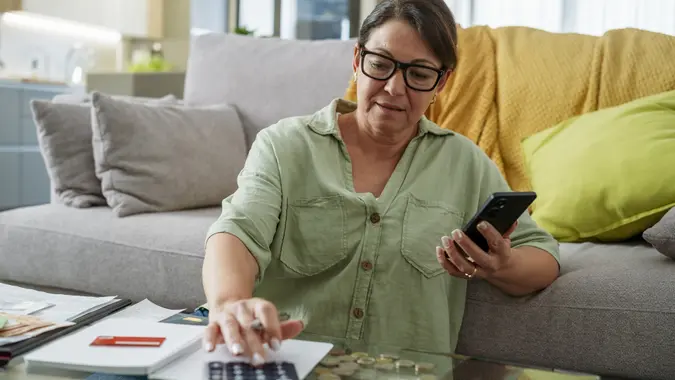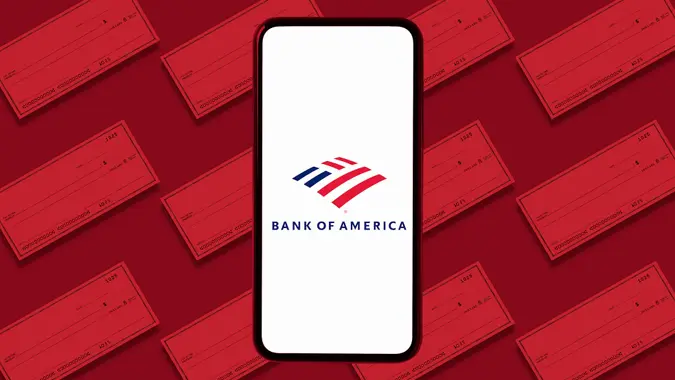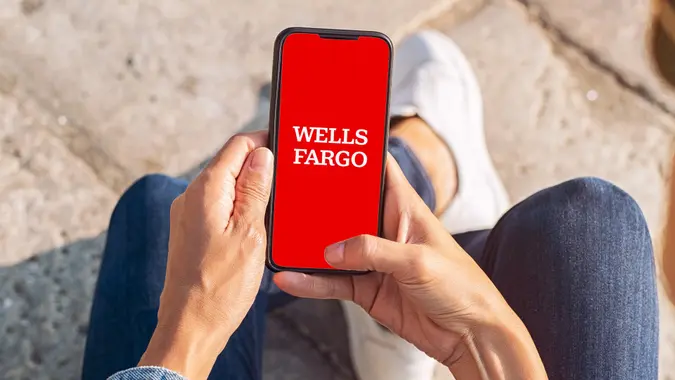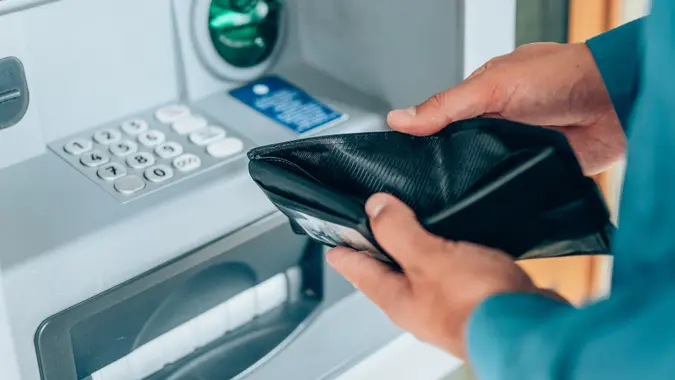Should You Close a Checking Account if You Never Use It?

Commitment to Our Readers
GOBankingRates' editorial team is committed to bringing you unbiased reviews and information. We use data-driven methodologies to evaluate financial products and services - our reviews and ratings are not influenced by advertisers. You can read more about our editorial guidelines and our products and services review methodology.

20 Years
Helping You Live Richer

Reviewed
by Experts

Trusted by
Millions of Readers
Many individuals open a checking account for convenience, only to find that they rarely use it. This situation leads to a common question, “Should I close a bank account I never use?” The decision to close an unused checking account involves considering several factors. While a free checking account might not incur fees, it can still impact your financial profile. Here’s what you need to know about the implications of unused accounts and how to decide whether closing them is the best course of action.
What Happens if You Open a Checking Account and Never Use It?
Unused checking accounts, especially free checking accounts, may seem harmless. However, banks often have policies for dormant accounts that can include fees or eventual closure.
While a free checking account might not have maintenance fees, inactivity could trigger other charges or complications. Additionally, having multiple unused accounts could be a security risk, as you might not notice unauthorized transactions or fraudulent activity.
Should You Close a Bank Account You Never Use?
Closing an unused bank account can be a wise move to simplify your finances, reduce potential security risks and avoid any unforeseen fees. Before closing, consider the following:
- Check for any dormant account fees or closure penalties.
- Ensure there are no automatic payments or direct deposits linked to the account.
- Consider the potential impact on your credit score, as some credit scoring models consider your banking history.
How To Close a Checking Account
If you decide to close a checking account, it’s important to do it correctly to avoid complications. Here are some steps you can follow:
- Verify account balance: Ensure your account balance is zero or close to it. Withdraw funds or transfer them to another account.
- Stop automatic payments: Cancel any direct deposits or automatic bill payments linked to the account.
- Contact the bank: Inform your bank of your decision to close the account. This can often be done online, in person or over the phone.
- Obtain written confirmation: Once the account is closed, get a written confirmation from the bank for your records.
- Check your credit report: After closing the account, monitor your credit report to ensure the account closure is reflected accurately.
Closing a checking account, especially one that’s not actively used, can streamline your financial management and offer peace of mind. However, ensure the process is completed thoroughly to avoid any loose ends.
Final Take
Whether to close a checking account you never use depends on individual circumstances. Regularly review your banking needs, keeping an eye on account terms and your overall financial health. Closing an unused account can streamline your financial management but do so thoughtfully to avoid unintended consequences.
FAQ
Here are the answers to some of the most frequently asked questions about closing bank accounts.- What happens if I don't use my checking account?
- If you don't use your checking account, it may become dormant. Banks have different policies, but typically after a period of inactivity -- often 12 to 24 months -- they may start charging inactivity fees or even close the account.
- How long will a checking account stay open with no activity?
- A checking account can stay open with no activity for about 12 to 24 months, depending on the bank's policy, before it's considered dormant or inactive.
- Do I need to close my bank account if I don't use it?
- While it's not mandatory to close an unused bank account, doing so can simplify your finances, reduce the risk of fraudulent activity and avoid potential fees for inactivity.
- Is it bad to open a checking account and then close it?
- Frequently opening and then closing checking accounts can be seen as a red flag by banks. It's best to open an account only if you plan to use it, or if closing, do so after considering any impacts on your financial standing.
Editor's note: This article was produced via automated technology and then fine-tuned and verified for accuracy by a member of GOBankingRates' editorial team.
 Written by
Written by 



























